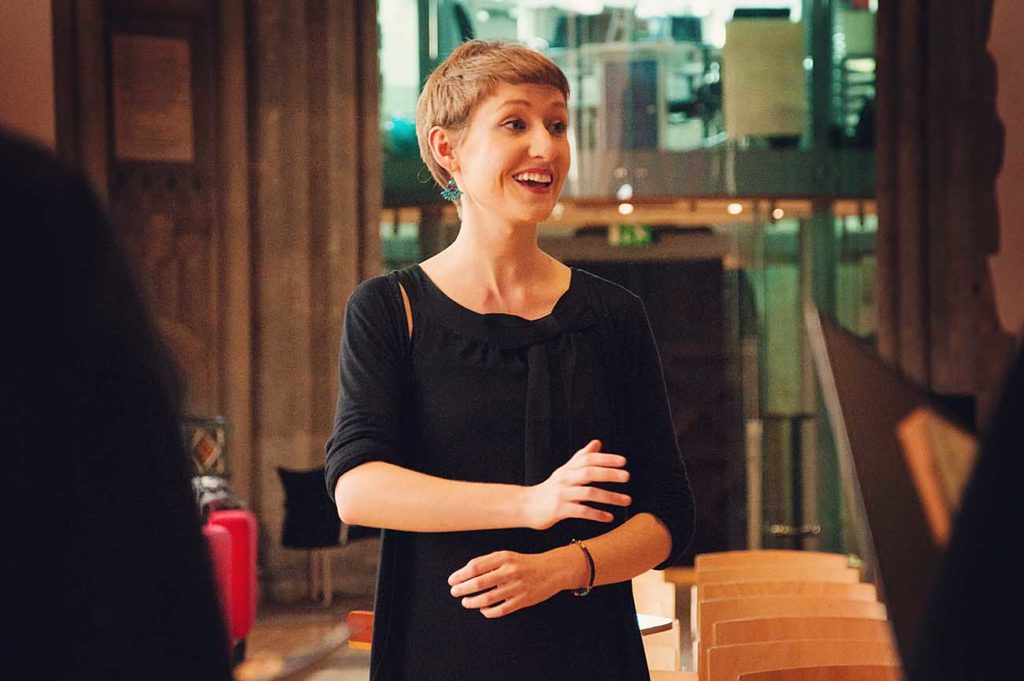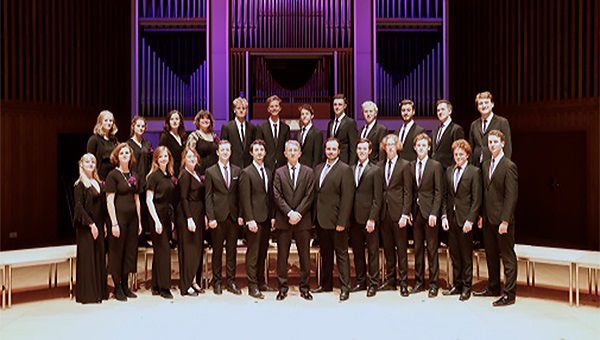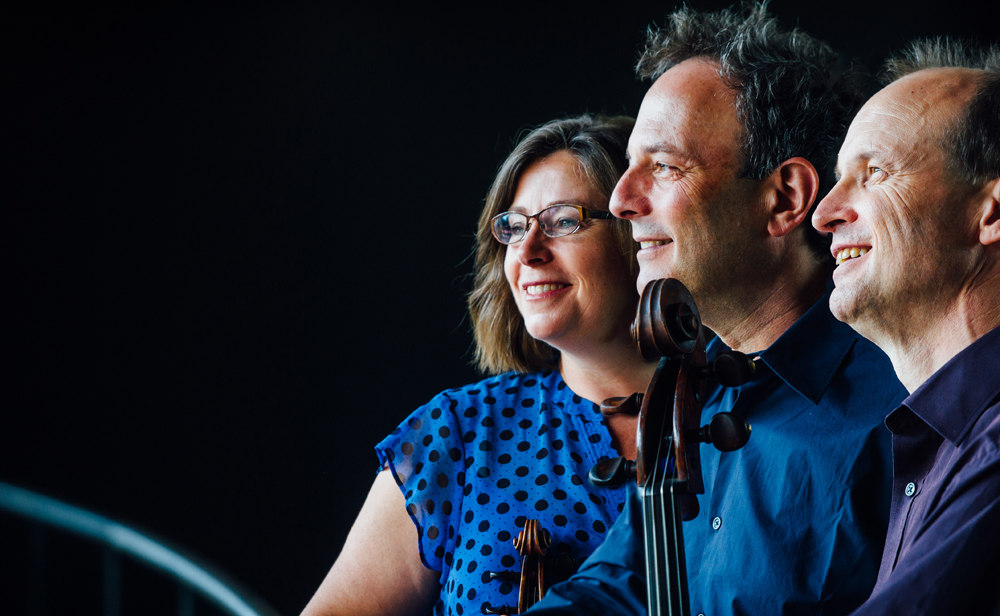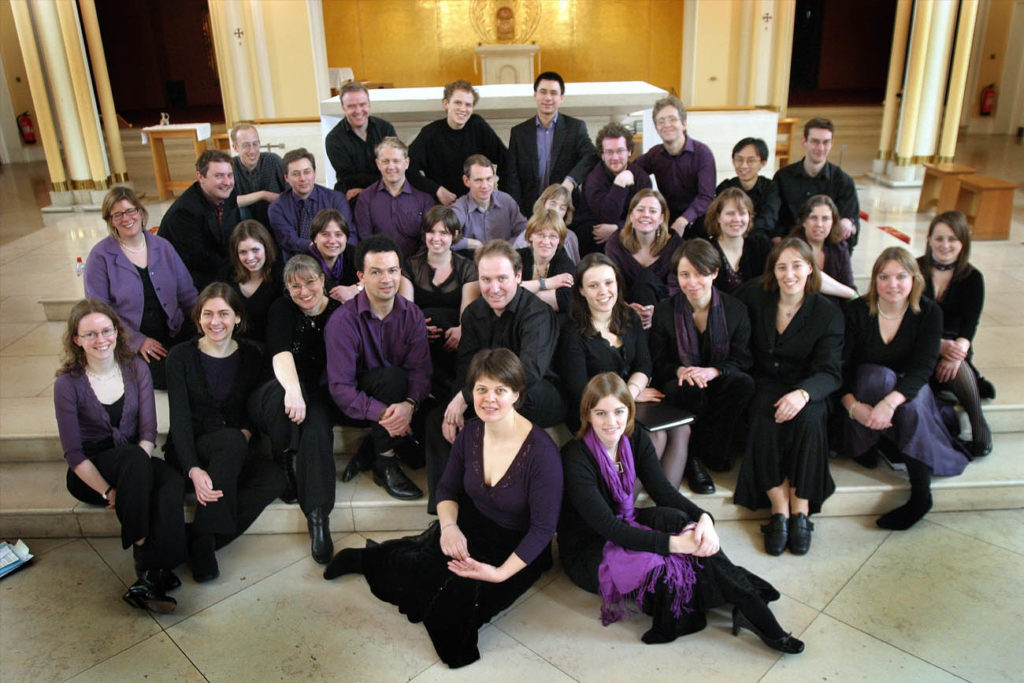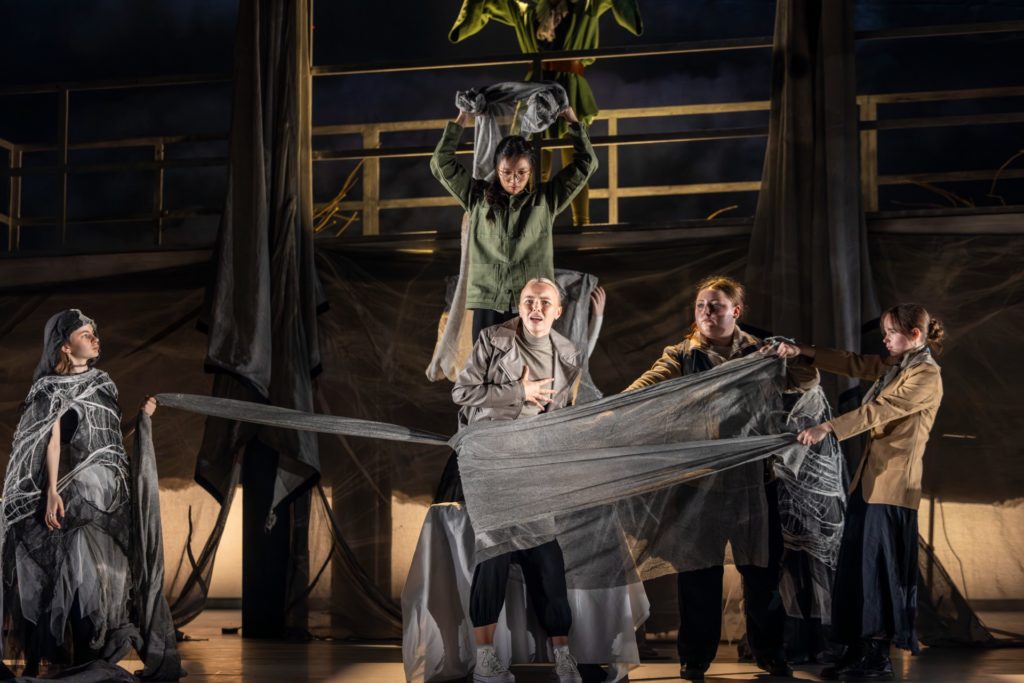
Abigail McHale as Investigator with members of the Opera North Youth Company in Judith Weir’s The Secret Of The Black Spider. Picture: James Glossop
OPERA North opened its new season with the UK premiere of Judith Weir’s comic thriller in the version first seen at Staatsoper Hamburg in 2008 as Das Geheimnis der schwarzen Spinne.
It features orchestration expanded by Benjamin Gordon from the original 1984 score, which was simply The Black Spider.
It was a bold move by the company to put its youth branch front and centre – and it worked astoundingly well. Weir’s own libretto interweaves two tales, primarily a 19th century novella by the Swiss writer and pastor Jeremias Gotthelf, set in the late 15th century, but also a 1983 report in The Times about excavations at Wawel Cathedral in Kraków.
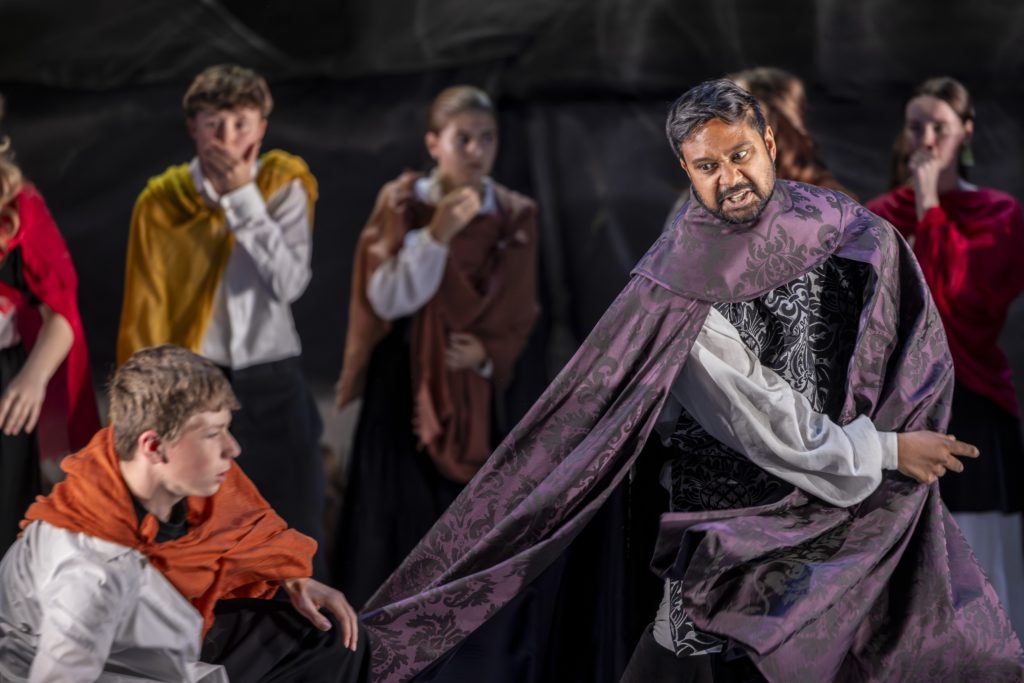
Ross Ramgobin as Count Heinrich with members of the Opera North Youth Company. Picture: James Glossop
Both stories involve mysterious spiders thought to be lethal. Weir runs them in parallel by inserting five modern interludes, staged as a documentary, into two acts built around the mediaeval fairy-tale.
So we began with journalists interviewing an archaeologist about excavations of King Casimir IV’s tomb in Kraków. By the end we had learnt from a pathologist that a spider had emerged from inside the tomb, followed by the unexplained deaths of several excavators.
Back in 1492, the despotic Count Heinrich’s villagers in the Carpathian mountains are unable to plant a shady grove for his mountain-top castle, but take up the Green Man’s offer to help out. In return, he demands marriage to Christina, who pretends to jilt her fiancé Carl.
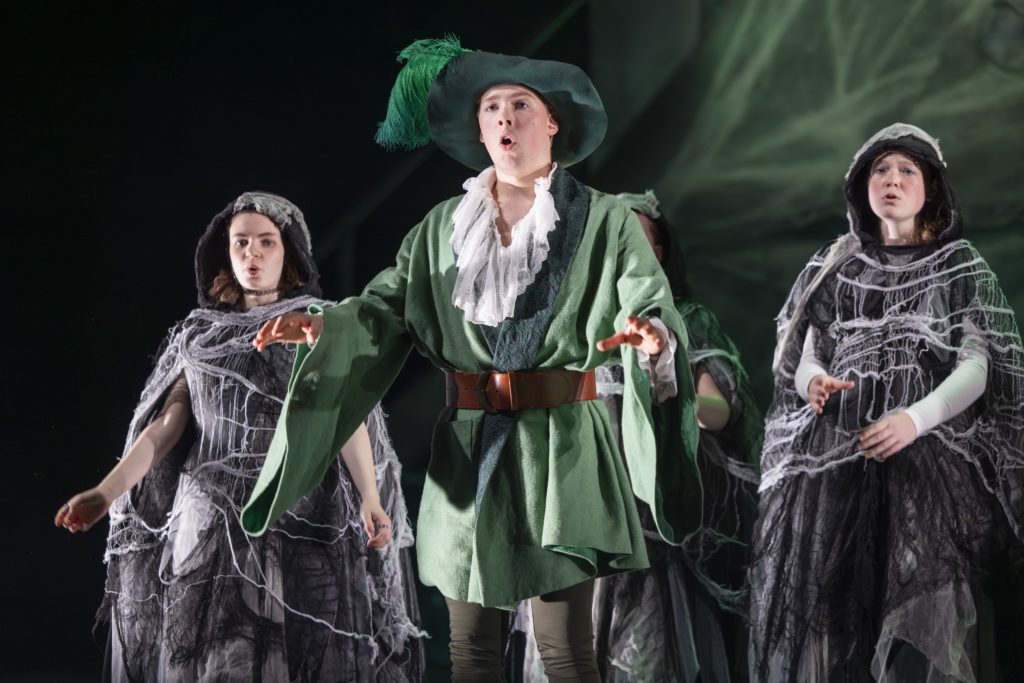
Daniel Wright as The Green Man with members of the Opera North Youth Company. Picture: James Glossop
Marrying him anyway, she is punished with a painful hand, from which emerges a plague-bearing spider that crawls inside the Count’s helmet. Driven mad and insensible with drink, he rides to his death. Christina eventually captures the rampaging spider in a trumpet and persuades the sculptors to bury it in the tomb they are preparing for the recently-deceased Casimir IV.
The two stories thus coalesce: cue general rejoicing in the mountains, while a modern-day investigator deduces that “there is a rational answer to everything”.
The score calls for two professional singers. Ross Ramgobin brought a commanding baritone to Heinrich, cleverly blending menace with mirth, while Pasquale Orchard’s vivid soprano allied to her background in dance made for a lively Christina.
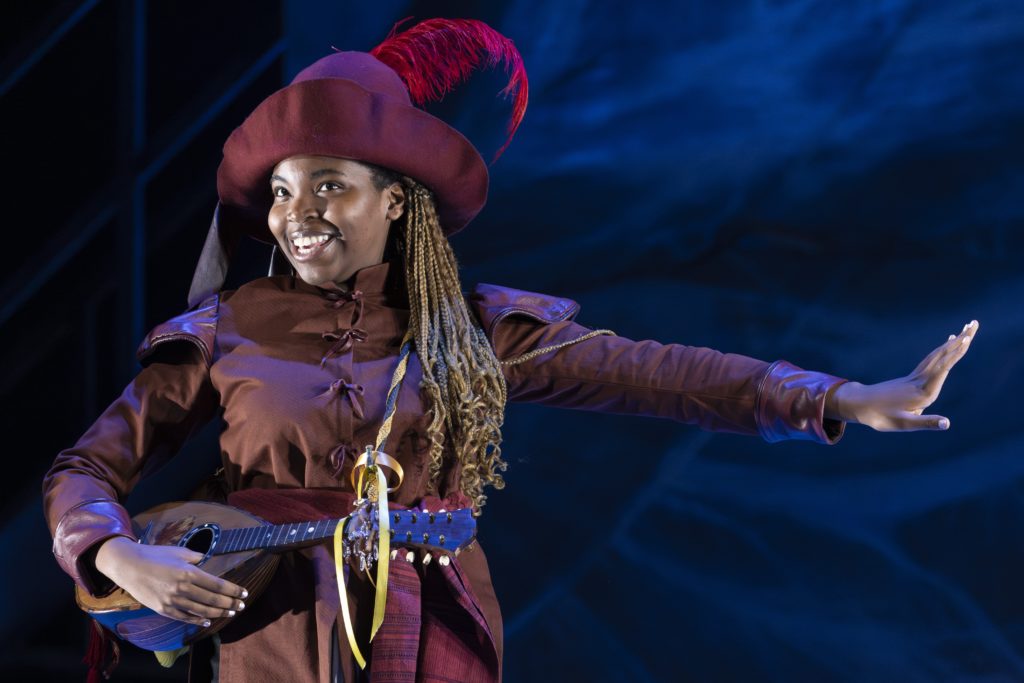
Akele Obiang as Caspa. Picture: James Glossop
A variety of cameos were spread throughout the Opera North Youth Chorus and taken with enthusiasm and aplomb. Special mention must go to Daniel Wright who doubled as the Green Man and as a priest attempting to point a final moral, Jeannot Gantier-Hudson as Carl and Akele Obiang as Christina’s visiting cousin Caspa; all three contributed important solos.
Weir’s music, always with tonality not far from the surface, has an irrepressible momentum, which combines tellingly with the wry humour that underlies much of the libretto. It even spoofs operatic conventions. A spider motif dominates the latter stages, and she convincingly interpolates ‘Now thank we all our God’ into the celebrations.
Nicholas Shaw kept a firm hand on the tiller, steering the chamber-sized Opera North Youth Orchestra through tricky rhythmic waters and easily keeping his singers afloat. Chorus discipline under Rosie Kat’s direction was superb, even when tested by the imaginary spider’s rapid reappearances amongst the crowd.
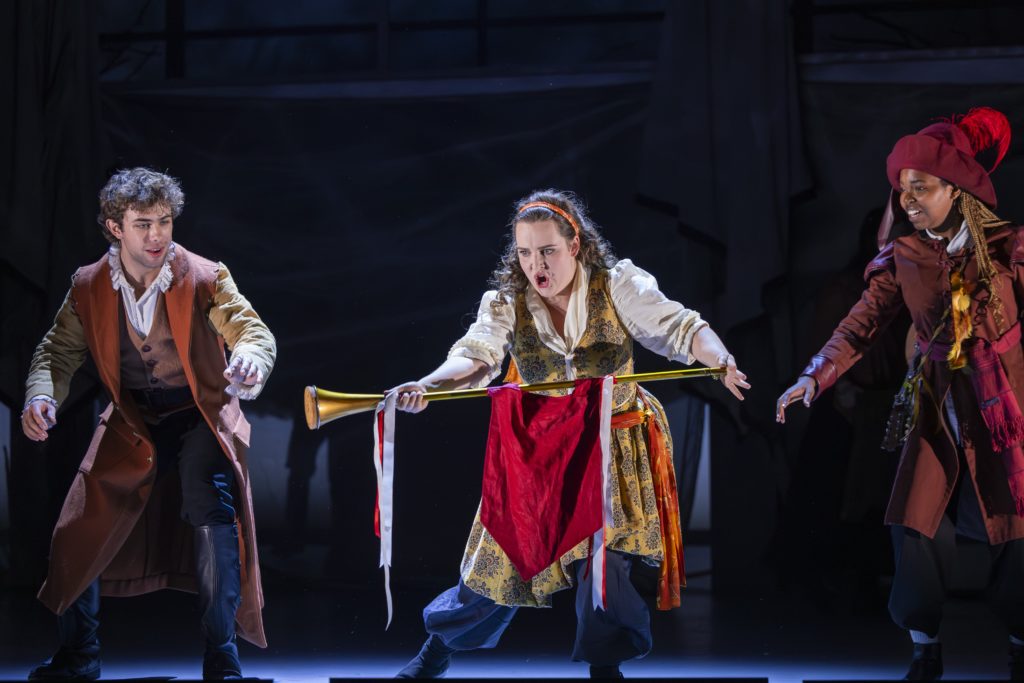
Jeannot Gantier-Houston as Carl, Pasquale Orchard as Christina and Akele Obiang as Caspa in The Secret Of The Black Spider. Picture: James Glossop
Zara Mansouri’s set and costumes conjured both period and topography, with Jake Wiltshire’s flexible lighting adding to the mystery but without gloom.
It should be unnecessary to mention that this was the company’s first main-stage opera by a female composer.
All the creative team was at pains to point out that much of the production’s subtlety originated with the performers themselves. It highlighted the vital importance of the whole undertaking: educational outreach is one thing, but putting young performers before the general public quite another. It also offered as powerful a guarantee as can be imagined of the company’s future health.
Review by Martin Dreyer
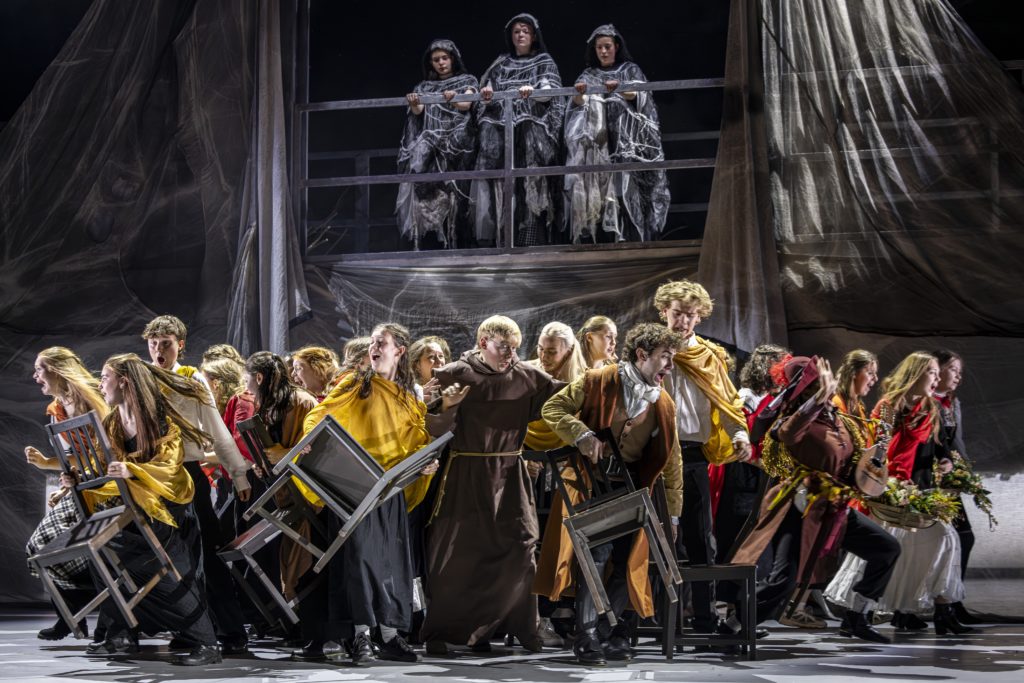
The Opera North Youth Company in The Secret Of The Black Spider. Picture: James Glossop

